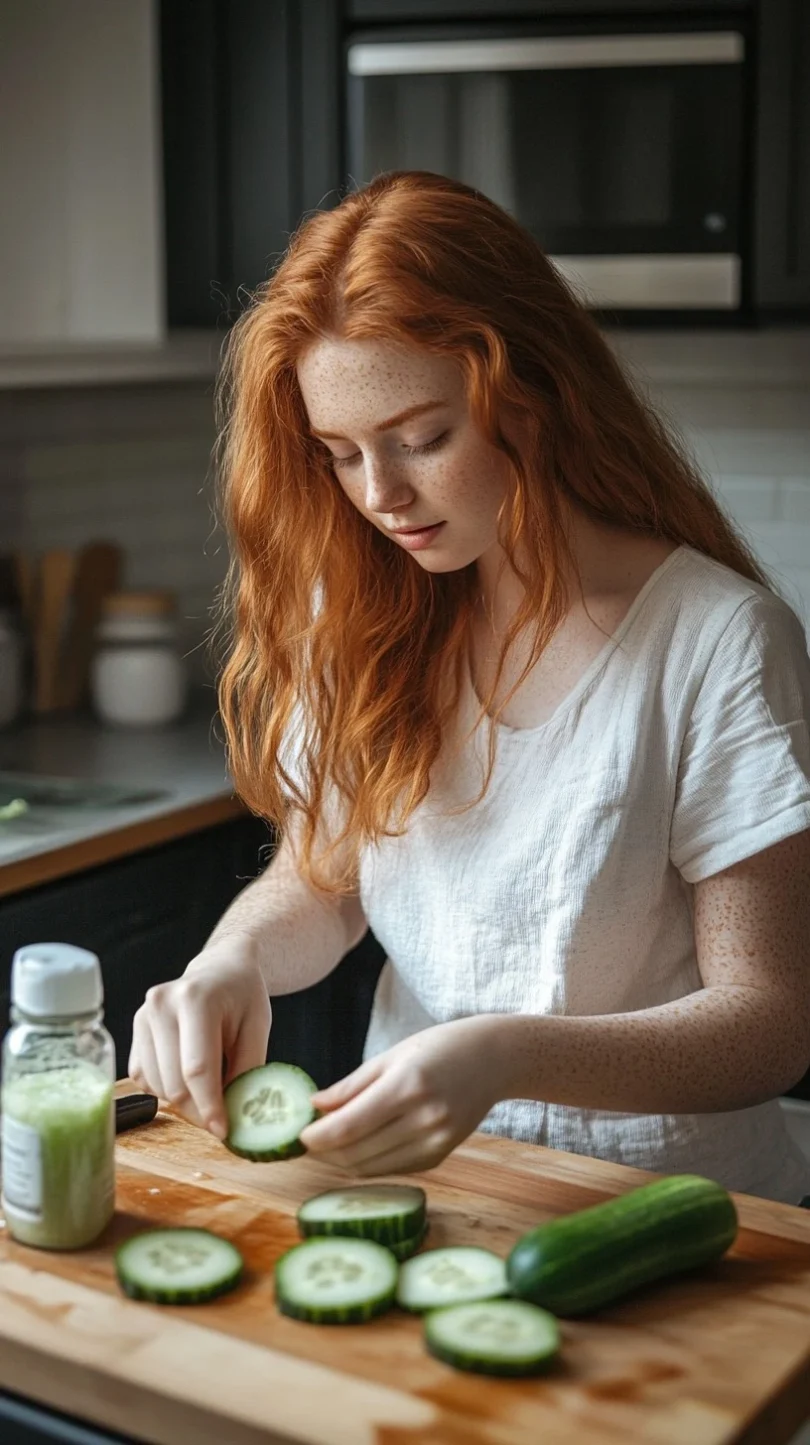Introduction
Healthy hair is a sign of overall wellness, and while shampoos and conditioners play a role in maintaining shiny locks, the key to truly vibrant hair lies in your diet. What we eat directly affects the health, strength, and growth of our hair. By fueling your body with the right nutrients, you can nourish your hair from the inside out. This article explores how a well-balanced diet rich in essential vitamins, minerals, and proteins can support hair growth and prevent hair loss.
—
The Science of Hair Growth
Hair grows in cycles that include growth, resting, and shedding phases. According to a study published in the Journal of Clinical and Experimental Dermatology, hair grows about 0.3 to 0.4 mm per day, and the average person sheds 50 to 100 hairs daily . However, nutritional deficiencies can disrupt these cycles, slowing growth and causing hair to become thin or brittle.
“Hair is composed of a protein called keratin, and just like every other part of the body, it needs specific nutrients to stay healthy,” explains Dr. Francesca Fusco, a dermatologist specializing in hair loss . Without the right fuel, hair follicles may weaken, and growth could stall.
—
Key Nutrients for Hair Health
1. Protein: The Building Block of Hair
Hair is primarily made of protein, so consuming enough is essential. Lack of protein can cause hair to become weak and eventually fall out. Foods rich in protein include:
– Lean meats like chicken and turkey
– Fish, especially fatty fish like salmon
– Eggs
– Legumes like lentils and chickpeas
A study in the American Journal of Clinical Nutrition found that protein deficiencies can significantly impact hair structure, leading to thinning and loss . Therefore, a protein-rich diet is crucial for maintaining and promoting healthy hair growth.
2. Iron: Boosting Circulation to the Scalp
Iron is vital for hair health because it helps red blood cells carry oxygen to the scalp, promoting growth and repair. Iron deficiency, also known as anemia, is a common cause of hair loss, particularly in women. Foods rich in iron include:
– Spinach and other leafy greens
– Red meat
– Fortified cereals
– Beans
According to the British Journal of Dermatology, there is a strong link between iron deficiency and hair loss in women . Incorporating iron-rich foods into your diet can help reverse hair thinning caused by anemia.
3. Biotin: Strengthening Hair Follicles
Biotin, also known as vitamin B7, is often touted as a miracle nutrient for hair. It strengthens the hair shaft and prevents breakage. Foods high in biotin include:
– Eggs
– Nuts and seeds
– Sweet potatoes
– Almonds
“Biotin deficiency can lead to hair thinning and loss, but it’s rare in individuals who maintain a well-balanced diet,” says Dr. Zoe Draelos, a board-certified dermatologist .
4. Omega-3 Fatty Acids: Adding Shine and Elasticity
Omega-3s are healthy fats that play a role in hydrating the scalp and hair. They help combat dryness and promote shine and elasticity. Omega-3-rich foods include:
– Fatty fish such as salmon, mackerel, and sardines
– Flaxseeds
– Walnuts
– Chia seeds
Research published in the Journal of Cosmetic Dermatology found that omega-3s also help reduce hair breakage and thinning .
—
Vitamins for Healthy Hair
1. Vitamin A: Promoting Scalp Health
Vitamin A helps the scalp produce sebum, a natural oil that moisturizes the scalp and keeps hair healthy. However, too much vitamin A can lead to hair loss. Good sources of vitamin A include:
– Carrots
– Sweet potatoes
– Spinach
– Kale
According to the National Institutes of Health (NIH), maintaining proper vitamin A levels can prevent a dry, flaky scalp that can contribute to hair loss .
2. Vitamin C: Enhancing Iron Absorption
Vitamin C helps the body absorb iron more effectively. It also promotes collagen production, a protein that strengthens hair. Sources of vitamin C include:
– Citrus fruits like oranges and lemons
– Bell peppers
– Strawberries
– Broccoli
In a review by the *Dermatology Research and Practice Journal*, vitamin C was found to be essential for maintaining the strength and structure of hair strands .
3. Vitamin E: Improving Blood Circulation
Vitamin E is an antioxidant that improves blood circulation, ensuring that hair follicles get the nutrients they need to grow. Foods rich in vitamin E include:
– Sunflower seeds
– Almonds
– Avocados
– Spinach
A study in the Tropical Life Sciences Research journal reported that vitamin E supplementation improved hair growth in individuals with hair loss .
—
Minerals Essential for Hair Growth
1. Zinc: Supporting Hair Growth and Repair
Zinc plays a key role in hair tissue growth and repair. A deficiency can lead to hair loss and delayed regrowth. Foods high in zinc include:
– Oysters
– Pumpkin seeds
– Beef
– Lentils
The Journal of Dermatology highlights zinc’s importance, noting that it helps keep oil glands around hair follicles functioning properly .
2. Magnesium: Combatting Hair Loss
Magnesium is another crucial mineral that helps prevent hair loss by reducing inflammation and promoting healthy follicle function. Magnesium-rich foods include:
– Almonds
– Spinach
– Cashews
– Avocados
According to research published in the Journal of the American Academy of Dermatology, magnesium deficiencies can lead to hair thinning and loss .
—
How a Poor Diet Can Lead to Hair Loss
Just as a healthy diet can promote hair growth, a poor diet can lead to hair thinning and loss. Diets lacking essential nutrients, such as those low in protein, iron, or vitamins, can cause hair follicles to weaken. A study published in The Journal of Nutrition found that restrictive diets, like crash dieting or fasting, often result in nutrient deficiencies, leading to significant hair loss .
“When the body is deprived of vital nutrients, hair growth is one of the first processes to slow down,” explains Dr. Elizabeth Cunnane Phillips, a trichologist at the Philip Kingsley Clinic .
—
Healthy Hair Through Lifestyle Changes
1. Hydration: The Unsung Hero
Water is often overlooked, but staying hydrated is crucial for hair health. Dehydration can lead to dry, brittle hair that is more prone to breakage. Drinking enough water each day supports hair growth by keeping the scalp and hair follicles hydrated.
2. Exercise and Hair Health
Exercise boosts blood circulation, ensuring that hair follicles receive the nutrients they need. According to a study in Sports Medicine Journal, regular physical activity can help reduce stress, a known cause of hair loss .
—
Foods to Include for Healthier Hair
To maintain strong, shiny hair, here are some foods you should include in your daily diet:
– Salmon: Packed with protein, omega-3s, and biotin
– Eggs: A great source of protein and biotin
– Spinach: Rich in iron and vitamins A and C
– Nuts and Seeds: High in omega-3s and zinc
– Sweet Potatoes: Full of vitamin A
—
Conclusion: Nourishing Hair from Within
The connection between diet and hair health is undeniable. By consuming the right balance of proteins, vitamins, minerals, and healthy fats, you can fuel hair growth and maintain strong, shiny locks. While hair care products can provide temporary results, long-term hair health comes from within. As Dr. Alan Bauman, a prominent hair restoration expert, puts it, “Healthy eating is the foundation for healthy hair. You can’t out-supplement a poor diet” .
So, the next time you sit down for a meal, remember that what you put on your plate also affects what grows on your head. Nourishing your body means nourishing your hair.
To maintain a healthy life, YOU can take a look at our recipes.


Leave a Reply